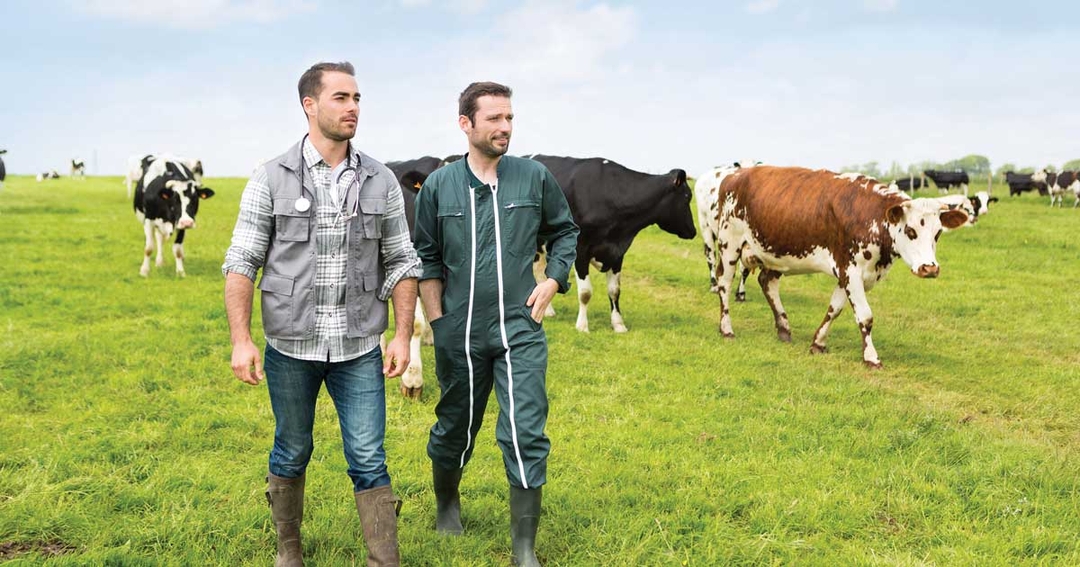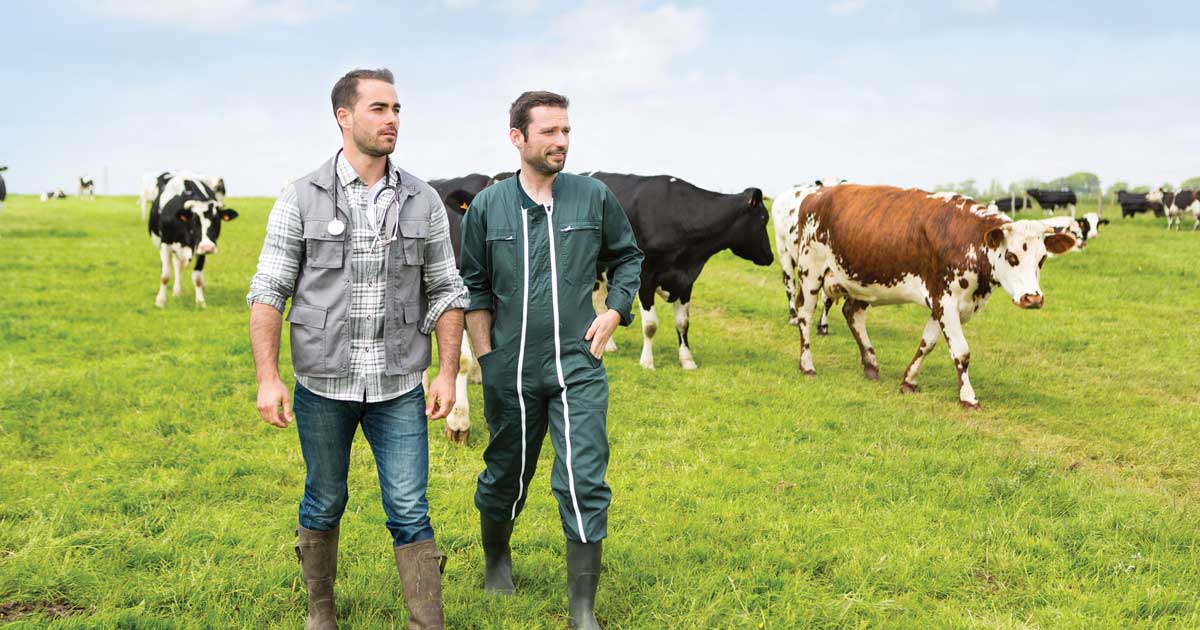1 Jul 2021
Challenging situations are a given in life as a farm vet. David Anderson, member of the VetPartners Wellbeing Group and practising vet at Westpoint Farm Vets in Derbyshire, shares his insights into how vets can stay resilient and on top of their game – no matter the situation…

Image © Production Perig / Adobe Stock

We know farm veterinary work can be stressful. A substantial amount of lone working happens, without the safety net of a colleague in the consulting room next door to offer support.
This means from early in their career, newly qualified vets need to approach difficult or unfamiliar situations with confidence. They also need to recognise that things will not always go to plan.
Resilience essentially means having the ability to recover from setbacks. By learning to reframe setbacks and use them to your advantage in future situations, it is possible to reduce stress. It is well understood that prolonged high stress levels can trigger physical and mental health problems, and resilience is an important tool to combat this.
At the risk of exacerbating stereotypes, vets tend to be the type of people who sailed through school and college, getting the grades they needed for vet school and then doing well at university, too.
This means that while they have plenty of experience of working hard to achieve their goals, many newly qualified vets don’t have much experience of failing at something. This means, when the inevitable undesired outcomes or situations come along, it can hit vets hard in terms of the impact on their well-being and confidence.
The feelings and emotions that come with a lack of resilience are universal, as are the strategies that can develop resilience.
VetPartners recently ran a series of webinars for farm vets, which shared some techniques from cognitive behavioural therapy and how they can be applied in working situations for a farm vet. This type of training can help vets understand how to reshape their thinking and responses to emotions, to become more resilient in the face of challenges.
Providing vets with opportunities for extra training in so-called “soft skills”, such as the resilience workshops, can have long-lasting impacts on team well-being and morale.
It can also be helpful to put this in the context of our day-to-day roles, by exploring some of the stressful situations that are inevitably going to occur at some point.
No matter what you do, at some point something will go wrong, such as an animal dying following treatment. This is something vets must accept and prepare for.
Animals will sometimes die, often when least expected. Speaking to colleagues after a case that did not go to plan is the number one way of coping. Discuss what happened with a colleague, including all the decisions made and the reasoning behind them.
In about 95% of cases you’ll find the actions taken were the same as someone else would have done. For less experienced vets, talking can help, simply for the reassurance that they would have done the same thing, with the same result.
Occasionally, situations will arise where a farmer perceives an animal’s death to be a result of a less experienced vet’s decisions. However, this is usually just about trust.
More recently qualified vets can actively build trust with their farm clients by following up on cases. Ring up to ask how an animal you’ve recently treated is doing.
Farmers really appreciate this level of care and attention, and it helps build rapport. Many will thank you when you follow up, even in cases when an animal has died.
Cases where a mistake was made can be more difficult for a vet to recover from and maintain resilience.
It sounds cliché, but the most important thing is to learn from mistakes. Speak to a colleague and remember you’re not the only one. Vets are humans, which means we’re not infallible. All senior vets will have their stories, regardless of whether they choose to share them.
Practice culture has a role to play in creating an environment where less-experienced vets feel comfortable asking questions and speaking up if they are unsure or think they have made a mistake.
Senior vets can lead the way to create an open and honest culture. At our practice we have an open-plan office, which we’ve gradually been making more use of as COVID restrictions ease.
It makes a lot of difference to have vets sitting together, hearing each other’s conversations and discussing difficult cases.
I’d much rather a less-experienced vet spoke up and shared if he or she is confused by something. A culture that is as open as possible will be more conducive to vets asking for clarification sooner rather than later. An open and transparent culture should be embedded within formal processes, too.
It’s important to have an official system in place, so when things do go wrong, decisions can be examined and lessons learned.
For me, once I’m treating an animal I push the value right to the back of my mind and treat it the same as any other. This is not too difficult once I’m physically treating it and I’m concentrating on the procedure alone. Sometimes, treating a high-value animal can seem easier, because the facilities are excellent.
Some farmers will spare no expense for their most prized animals. I’ve turned up to operate before to find clean straw, the animal already clipped, hot water, good lighting and two people ready to help with anything I need, which seems luxurious and sets us up for success.
However, it is important to recognise that money is always going to be a factor in farm veterinary work.
This is where knowing your clients and their priorities, and clearly giving them the facts so they can make their economic decisions is crucial.
For farm vets in high-risk TB areas, such as Derbyshire, TB can be a real threat to farm clients’ well-being. Being the vet who shares the news that a farm has failed its TB test can be a stressful conversation.
Never underestimate the ramifications a failed TB test can have for the farmer – both financially and emotionally.
Being the deliverer of bad news is not a comfortable place to be, but ways to approach it that can help the farmer take a pragmatic approach do exist. This includes staying calm, sharing the facts and having empathy.
Another tricky situation requiring a resilient and assertive approach is when a farm client asks a vet to sign a false declaration, such as a slaughter certificate, TB test or insurance claim.
Thankfully, this does not happen very often, but it is essential to be prepared to respond to a situation like this, and of course to never sign something that you’re not happy with. As soon as it’s signed, it’s your name on the piece of paper, and you can’t undo it. Sometimes farmer clients will pressurise you by saying that another, more-experienced, vet at the practice does it all the time.
The best thing to do in this situation is to remain polite and professional, but stay true to what you see as the appropriate action.
Avoid setting a precedent. If you sign something questionable once, it’ll be more difficult to say no in the future.
In summary, resilience is not to be underestimated as it allows vets to cope with the tricky situations they will invariably come across.
It is possible for anyone to build resilience, and having an open and honest culture within practices can help vets with this.
For less-experienced vets, simply considering the types of challenges they may come across day-to-day and how best to respond can help when the inevitable challenges come along.